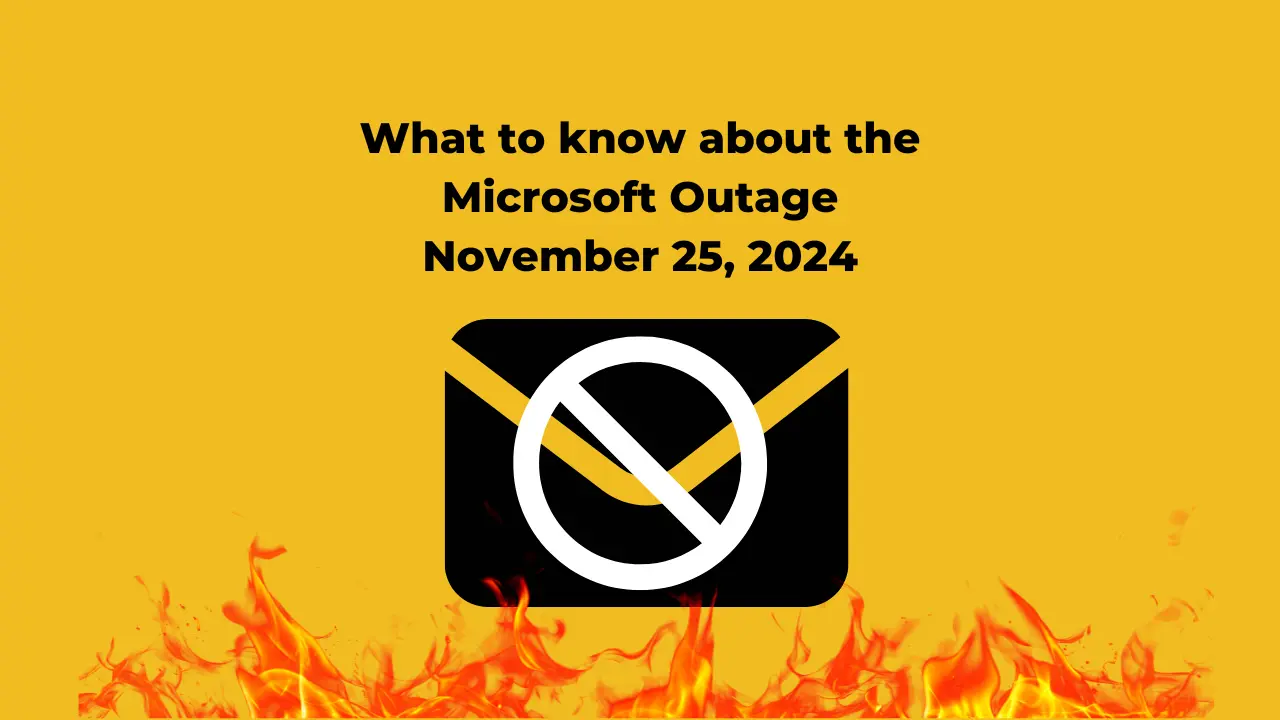
UPDATE: As of 9:00pm MST on November 25, Microsoft provided the following update on their X account:
"We've restored functionality for all impacted services except Outlook on the web, which is still affected for a small number of users. We're monitoring and troubleshooting to fully recover. Refer to portal.office.com/servicestatus and admin center under MO941162 for more information."
UPDATE: As of 12:00pm MST on November 25, Microsoft provided the following update on their X account:
"We're facing delays in our recovery efforts and are taking immediate action to address them. We understand the significant impact of this event to your businesses and are working to provide relief as soon as possible. More details can be found in the admin center under MO941162."
A widespread outage affecting Microsoft services, including Outlook email, disrupted user access worldwide this morning, November 25, 2024. The tech giant acknowledged the issue on X, formerly known as Twitter, assuring users that engineers are working diligently to restore service.
While major tech companies strive for near-perfect uptime, such incidents highlight the importance of digital resilience. Businesses and individuals alike must be prepared for potential service disruptions that could hinder productivity and operations.
The Growing Reliance on Cloud Services
In today's digital age, organizations increasingly rely on cloud-based services to streamline operations and improve efficiency. However, this reliance also exposes businesses to potential risks, such as service outages, data breaches, and cyberattacks.
The Microsoft outage serves as a stark reminder of the potential consequences of service disruptions. Even brief outages can have a significant impact on productivity, revenue, and reputation. For instance, businesses may experience delays in communication, hindered collaboration, and difficulty in accessing critical data.
Building Digital Resilience
To mitigate the impact of service disruptions, organizations should implement the following strategies:
- Diversify Service Providers: Relying on a single provider can increase vulnerability. By diversifying service providers, organizations can reduce the risk of a single point of failure.
- Implement Robust Backup Strategies: Regular backups of critical data are essential to ensure business continuity. Organizations should consider using multiple backup methods, such as local backups, cloud backups, and offsite storage.
- Utilize Offline Tools and Processes: Having offline tools and processes in place can help maintain productivity during outages. For example, organizations can provide employees with offline versions of productivity software or paper-based workflows.
- Conduct Regular Disaster Recovery Drills: Regular disaster recovery drills can help identify potential weaknesses in disaster response plans. By simulating real-world scenarios, organizations can test their response capabilities and make necessary adjustments.
- Invest in Cybersecurity: Strong cybersecurity measures are essential to protect against cyberattacks that can disrupt services. Organizations should implement firewalls, intrusion detection systems, and other security tools to safeguard their digital infrastructure.
- Monitor Service Health and Performance: By monitoring the health and performance of cloud services, organizations can proactively identify potential issues and take steps to mitigate them.
- Develop a Comprehensive Incident Response Plan: A well-defined incident response plan can help organizations respond effectively to service disruptions. The plan should outline the roles and responsibilities of key personnel, communication protocols, and escalation procedures.
By adopting these strategies, organizations can build digital resilience and minimize the impact of future service disruptions.
While Microsoft has a strong track record of providing reliable services, the recent outage underscores the need for ongoing vigilance and proactive planning. By taking steps to prepare for potential disruptions, organizations can protect their operations and safeguard their reputation.
We specialize in helping your organization grow through the effective use of technology. Part of that includes incident response and disaster preparation. Want to see how Sentry CTO can help your business? Schedule a compatibility consultation today to find out how we can help your organization succeed.




